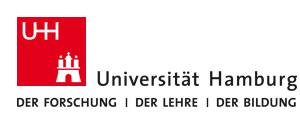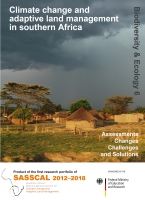
|

Department of Biology Institute of Plant Science and Microbiology |
| Division BEE > Biodiversity & Ecology > Vol.6 > Article 2.2 |
Biodiversity & Ecology
Journal of the Division Biodiversity, Evolution and Ecology of Plants , Institute for Plant Science and Microbiology, University of Hamburg.
Water resources Research article Open Access The long road to sustainability: integrated water quality and quantity assessments in the Cuvelai-Etosha Basin, Namibia
Resumo: Muitas regiões áridas e semi-áridas da África Austral sofrem pressão sobre os recursos hídricos, devido à precipitação limitada, às secas, ao elevado crescimento populacional e às infraestruturas precárias. De modo a satisfazer as necessidades domésticas, agrícolas e pecuárias, são utilizadas múltiplas fontes de água, mas o conhecimento científi co e local sobre tanto a qualidade como a quantidade das mesmas é limitado para a área de estudo. Inseridas nas Tarefas 007, 010 e 014 do SASSCAL, foram realizadas várias campanhas de campo (2013-2017) na Bacia Cuvelai-Etosha (CEB) transfronteiriça, com o objectivo de oferecer uma descrição detalhada dos recursos hídricos superfíciais e subterrâneos. As investigações revelam ser necessário introduzir uma gestão sólida e uma utilização coordenada dos recursos hídricos na CEB. Isto poderia incluir, por exemplo, a adição de responsabilidades aos comités das fontes de água, bem como estratégias de gestão de base baseadas num conhecimento profundo dos processos hidrologicamente relevantes. Existe água sufi ciente, mas a sua qualidade e quantidade são altamente variáveis. Simples acções a uma escala local, como, por exemplo, colher água da chuva, vedar poços e utilizar água de lençóis suspensos, poderão ajudar a melhorar substancialmente a situação.
Suggested citation: |
